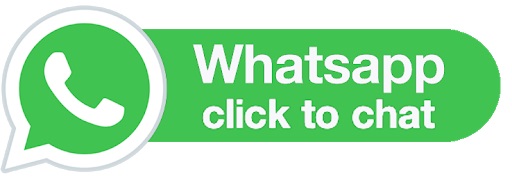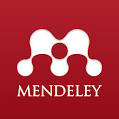Assessing The Impact Of Digital Communication On Language Processing
DOI:
10.29303/kopula.v7i1.6184Published:
2025-03-26Issue:
Vol. 7 No. 1 (2025): MaretKeywords:
Trashtall, Sarcasm, Psycholinguistics, Language, CommunicationArticles
Downloads
How to Cite
Abstract
Language, as a tool of human communication, develops with time and technology. The use of language, especially in abusive forms, is increasing on social media and online gaming, creating an environment detrimental to mental health. The development of digital technology plays an important role in this change, influencing psycholinguistic aspects such as Stuttering and Psychogenic symptoms. In the context of politics and social media, abusive language is used as a tool to convey opinions, creating conflict and tension. While the internet brings positive transformations in learning, ineffective use can lead to distraction and exposure to less controlled information. Evaluation of student psychomotor skills is key to understanding the impact of internet use in learning. Through this research, the aim is to explore the impact of digital communication on language processing, especially from a psycholinguistic perspective. Empirical findings and further research are needed to understand more deeply the complexity of the impacts of technology, both negative and positive. Full awareness of how to manage the internet is the key to minimizing negative impacts and increasing its benefits in various aspects of life.References
Adriyana, I. (2022). PERILAKU TOXIC PLAYER GAME ONLINE (Doctoral dissertation, FISIP UNPAS).
Andriani, L., & Rosidin, O. (2023). Gangguan Berbahasa Psikogenik Latah Pada Penutur Bahasa Wanita Lansia (Kajian Psikolinguistik). Jurnal DinamikA, 4(2), 74-85. Andriani, L., & Rosidin, O. (2023). Gangguan Berbahasa Psikogenik Latah Pada Penutur Bahasa Wanita Lansia (Kajian Psikolinguistik). Jurnal DinamikA, 4(2), 74-85.
Cahyanti, A. S. (2020). Analisis Penggunaan Kalimat Sarkasme oleh Netizen di Media Sosial Instagram. Lingua Franca: Jurnal Bahasa, Sastra, dan Pengajarannya, 4(2), 186-195.
Chun, D., Kern, R., & Smith, B. (2016). Technology in language use, language teaching, and language learning. The Modern Language Journal, 100(S1), 64-80.
Danuri, M. (2019). Perkembangan dan transformasi teknologi digital. Jurnal Ilmiah Infokam, 15(2).
Fatmawati, S. R. (2015). Pemerolehan bahasa pertama anak menurut tinjauan psikolinguistik. Lentera, 17(1).
Hikmah, S. N. A., & Mardiyah, A. N. (2022). Kajian Psikolinguistik Terhadap penyandang Stuttering (Studi Kasus: DN). Jurnal PENEROKA: Kajian Ilmu Pendidikan Bahasa dan Sastra Indonesia, 2(1), 1-16.
Isna, A. (2019). Perkembangan bahasa anak usia dini. Al Athfal: Jurnal Kajian Perkembangan Anak Dan Manajemen Pendidikan Usia Dini, 2(1), 62-69.
Janttaka, N. (2020). Analisis Dampak Game Online Mobile Legend Pada Anak Usia Sekolah Dasar Di Desa Junjung Kecamatan Sumbergempol Kabupaten Tulungagung. Inventa: Jurnal Pendidikan Guru Sekolah Dasar, 4(2), 132-141.
Makdis, N. (2021). Pemanfaatan Internet Untuk Perkuliahan
MASULA, W., & Nilawati, A. (2023). GAMBARAN STRESS PADA REMAJA YANG MENGALAMI KEKALAHAN GAME ONLINE (Doctoral dissertation, UIN Surakarta).
Mokoginta, H., Sojow, L., & Manggopa, H. K. (2021). Pengaruh Pembelajaran Menggunakan Video Tutorial Terhadap Hasil Belajar Mata Pelajaran Simulasi dan Komunikasi Digital. Edutik: Jurnal Pendidikan Teknologi Informasi dan Komunikasi, 1(3), 220-226.
Ni'mah, U. (2020, February). Pemanfaatan Internet Sebagai Sumber Belajar Pendidikan Agama Islam. In Conference on Islamic Studies FAI 2019 (pp. 326-340).
Paramita, D., Aldiano, M. R., Siregar, K. I. S., Sazali, H., & Andinata, M. (2022). Analisis Penggunaan Gaya Bahasa Sarkasme Netizen di Media Sosial Facebook. Jurnal Pendidikan Tambusai, 6(2), 14438-14445.
Rahman, D. (2021). Pemanfaatan Internet Sebagai Sumber Belajar dan Informasi. Maktabatun: Jurnal Perpustakaan dan Informasi, 1(1), 9-14.
Saadillah, A., Haryudi, A., Reskiawan, M., & Amanah, A. I. (2023). Penggunaan Bahasa
Sarastuti, D. (2017). Strategi komunikasi pemasaran online produk busana muslim queenova. Visi Komunikasi, 16(01), 71-90.
Sarkasme Netizen di Media Sosial. Jurnal Onoma: Pendidikan, Bahasa, Dan Sastra, 9(2), 1437-1447.
Sasmita, R. S. (2020). Pemanfaatan internet sebagai sumber belajar. Jurnal Pendidikan dan Konseling (JPDK), 2(1), 99-103.
Sugiono, L. A. (2019). Trash-Talking Dalam Game Online Pada User Game Online Di Indonesia (Etnografi Virtual Game Online Mobile legends dan Arena of Valor) (Doctoral dissertation, UNIVERSITAS AIRLANGGA).
Tarwiyati, P. A., & Sabardila, A. (2020). Bahasa Sarkasme Warganet dalam Berkomentar pada Akun Instagram@ Aniesbaswedan. Literasi: Jurnal Bahasa dan Sastra Indonesia serta Pembelajarannya, 4(2), 142-152.
Ulfatun, U. (2021). Analisis Penggunaan Gaya Bahasa Sarkasme Netizen di Media Sosial Instagram. Jurnal Onoma: Pendidikan, Bahasa, Dan Sastra, 7(2), 411-423.
Wahdiyati, D., & Putra, R. D. (2022). Kekerasan verbal dalam konten gaming di youtube (Analisis isi kualitatif konten ulasan permainan online maincraft dan mobile legend pada akun youtube miuveox dan brandonkent everything). Jurnal Indonesia Sosial Teknologi, 3(02), 203-218
Author Biographies
Wahyu Austin, Universitas Muhammadiyah Bengkulu
Ivan Achmad Nurcholish, Universitas Muhammadiyah Bengkulu
License
Copyright (c) 2025 Wahyu Austin, Ivan Achmad Nurcholish

This work is licensed under a Creative Commons Attribution 4.0 International License.
Authors who publish with Kopula: Jurnal Pendidikan dan Bahasa, agree to the following terms:
- Authors retain copyright and grant the journal right of first publication with the work simultaneously licensed under a Creative Commons Attribution 4.0 International License (CC-BY License). This license allows authors to use all articles, data sets, graphics, and appendices in data mining applications, search engines, web sites, blogs, and other platforms by providing an appropriate reference. The journal allows the author(s) to hold the copyright without restrictions and will retain publishing rights without restrictions.
- Authors are able to enter into separate, additional contractual arrangements for the non-exclusive distribution of the journal's published version of the work (e.g., post it to an institutional repository or publish it in a book), with an acknowledgment of its initial publication in Kopula: Jurnal Pendidikan dan Bahasa.
- Authors are permitted and encouraged to post their work online (e.g., in institutional repositories or on their website) prior to and during the submission process, as it can lead to productive exchanges, as well as earlier and greater citation of published work (See The Effect of Open Access).









